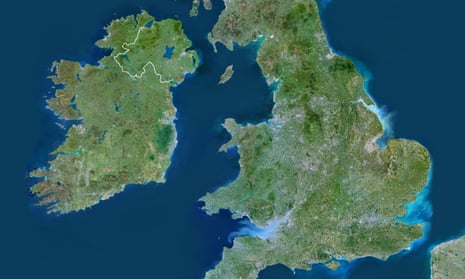I enjoyed Fintan O’Toole’s insightful analysis “The Paranoid Fantasy Behind Brexit” (16 November). Two additional factors he doesn’t mention (but are perhaps in his book) are other mentalities: the island mentality, and the Anglo-Saxon. In the former, the British islanders regard themselves as different from, or superior to, others across any water. Countries with land borders come to realise that they need to work together, partly because it’s blatantly obvious that borders have such little meaning and how easily they could be invaded.
The Spanish commentator José Ignacio Torreblanca gave us an external perspective in 2017 with an article entitled The Anglo-American Suicide, where he argued that the Brexit vote and the election of Trump represented an abdication of leadership in the world.
The Anglo-Saxons with their empiricism (in contrast to a continental European post-Roman rules and regulations approach) had, over centuries, spread liberal democracy and free trade across the world but were now renouncing leadership in favour of retreat into a narrower nationalism. Of course, all of these mentalities can reinforce each other.
Robin Clegg
Highworth, Wiltshire
In 1918, Ireland voted to take control of its borders, trade and money. A reluctant UK offered a compromise, the Irish Free State, which was ruefully accepted by a slim majority in Ireland. A bitter and bloody civil war ensued, with those believing no deal was better than a bad deal taking up arms against those whom they believed to have sold out. Ireland spent the next 50 years as a vassal state, with economically ruinous protectionist policies, a morally vacuous neutrality policy, and social policies that moved the new state from being a relatively progressive multicultural corner of Europe to a monocultural, smug, self-satisfied bastion of Roman Catholicism.
For 50 years, Ireland struggled to assert itself as an independent nation, remaining in thrall to the UK and blaming it for all her woes. In 1973, Ireland joined what is now the EU. Now, 45 years on, much of what happened in the previous half-century seems like a bad dream. Best of luck, Britain.
Ronnie Neville
Dublin
Why do we persist in referring to the “Irish” border? This makes it appear that it is the scheming Irish in cahoots with Brussels who are subverting British interests. In fact, it’s a self-imposed British border created in Ireland nearly a century ago, against the wishes of the vast majority of the people of Ireland, by a British government that was unwilling to face up to the inflexible demands of Ulster loyalism. Have we made any progress?
Sean Boyle
London
Geoffrey Boycott did more than “bore everyone to death” (The politics sketch: John Crace, 16 November). He unsuccessfully captained England in a mere four Tests, winning only one, ran teammates out and stubbornly failed to adapt to the modern game. Ring any bells, Prime Minister?
Toby Wood
Peterborough, Cambridgeshire
Join the debate – email guardian.letters@theguardian.com
Read more Guardian letters – click here to visit gu.com/letters
